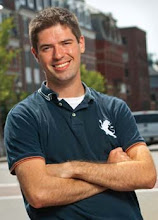The first book we chose was the 2008 winner of the Russky Buker award, which appears to be a rather prestigious award for fiction or poetry anthologies. The 2008 winner was Mikhail Elizarov’s Bibliotekar’ [The Librarian].
The description from the back talks about an unheard-of Soviet writer who produced several novels before he died. His novels met the ideal fate of a typical mainstream Soviet writer – that is, no one read them, they were packaged on to books people actually wanted to read for 5, 10 kopeeks, and booksellers generally tried to figure out how to get rid of the single publishing run of them, short of burning. Manuscripts don’t burn.
Fast forward to perestroika-era through the turn of the century, when the main events transpire. A few people randomly decide to read this writer, Gromov’s, books, and discover that they have magical powers. One is the Book of Strength, another of Memory, of Power, of Clarity, etc. etc. Library-clans form so Night Watch-style street fighting can take place. They search for the books people have thrown away or have lost in their libraries and attics and basements, and quest for a legendary Seventh Book.
A very interesting premise, and a plot that got me through about the first half of the novel before I got bored (the main antagonists, who consist of zombie-grandmothers – at least, that’s what I call them – a horde of old women in a nursing home who’ve gotten their hands on a Book of Strength and use it to rejuvenate, except it doesn’t always work on their minds as much on their bodies…were especially helpful in keeping my interest) but then it started to get ridiculous. Yes. After the zombie-grandmothers, it started to get ridiculous. Whatever. I finished it.
In lieu of coming up with some massive post about its societal impact, I’m just going to quote the section that made me have a “Wha-wha-wha?!” moment or three, and then you’ll see, perhaps. If you’ve been following post-Soviet and Russian-Ukrainian politics, I think you’ll understand why. Here, our protagonist, the nostalgic-among-nostalgics, Aleksei, has to make a drastic choice and has a long internal monologue.
Ведь и в моем настоящем детстве я свято верил, что воспетое в книгах, фильмах и песнях государство и есть реальность, в которой я живу...[After all in my childhood I piously believed that the government so glorified in books, films, and songs led, in reality, the country in which I lived…
Даже когда ненависть к собственной стране и ее прошлому считалась в обществе признаком хорошего тона, я интуитивно сторонился разоблачительных романов, орущих прожорливыми голосами чаек о всяких гулговских детях Арбата, идущих в белых одеждах. Меня смущала литературная полуправда...Пoвзрослевший, я любил Союз не за то, каким он был, а за то, каким он мог стать, если бы по-другому сложились обстоятельства...
И был еще один ключевой момент, важность и парадоксальность которого я осознал лишь через годы. Союз знал, как сделать из Украины Родину. А вот Украина без союза так и не смогла ею остаться...
Even when hatred against one’s country and its past became a societal marker of good taste, I intuitively shunned those “unmasking” novels, shouting in the voracious voices of seagulls of all the Gulag’s Children of the Arbat*, strutting in their white clothing. Their literary half-truths disturbed me ….Having grown up a little, I loved the USSR not for what it was, but for what it was able to become, if only societal developments were built up a little differently...
And there was still one more important point, the importance and paradox of which I realized only after years had passed. The USSR understood how to make a Motherland out of Ukraine. And – yup – Ukraine without the USSR just can’t seem to retain any sense of Motherland…]
*Note – he’s riffing on a famous title of just such a book.

No comments:
Post a Comment